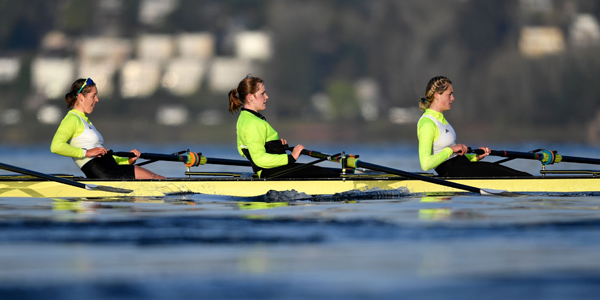With Seattle’s boating season opening May 7, when the UW crew teams will race in the Windemere Cup regatta, undergraduate Claire Marion took time out of her busy schedule to share her journey as a BioE student and crew team member. Above: Claire, center, with teammates. Photo credit: Alika Jenner
Rowers rely on several skills to be successful, including balance, strength, perseverance and teamwork.
As Claire Marion knows, they are skills that are just as relevant in the classroom and in life as on the water. A senior in UW Bioengineering, Claire has been a member of the UW Women’s Rowing team since arriving on campus in 2018. She’s been named to the Pac-12 Academic Honor Roll twice, and she finds time to volunteer at Swedish Medical Center as part of the COPE Health Scholars program.
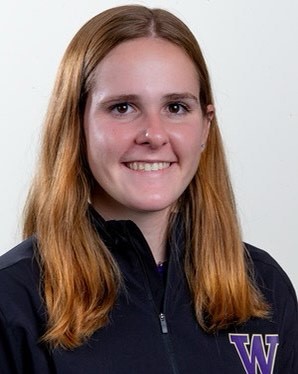
Bioengineering senior Claire Marion
Claire, who is from San Marcos, Calif., has been interested in medicine and biology since high school. One of her teachers suggested bioengineering. “I focused on that field when I was applying to schools and immediately fell in love with UW’s atmosphere,” Claire says. Her interactions with a few of the BioE professors helped to further spark her interest in the field and UW, and seal her decision.
Persevering through challenges
During her first week at UW, Claire learned about tryouts for the crew team. She had never rowed before but had always loved playing sports. An ACL tear had forced her to give up basketball, and she was looking for another option. When she made the crew team, she decided that rowing was the sport for her.
She loves that crew is a mixture of a team sport and individual challenges. “The erg (rowing ergometer) is such a mental challenge, and the work you do as an individual to improve your speed every day is very satisfying,” Claire explains. “You also need to feel the dynamic of the boat and row well with other people. It takes a lot of teamwork and being open to making changes. It’s exciting when everyone is rowing well together, and you can feel the boat speed start to pick up.”
Rowing has taught Claire the importance of persevering through challenges, a lesson she applies to her BioE studies. Like crew, “BioE classes are very rigorous and challenging, and sometimes things don’t always make sense, but you have to be able to stick with it even when it’s not coming easily,” she says.
“It takes a lot of teamwork and being open to making changes. It’s exciting when everyone is rowing well together, and you can feel the boat speed start to pick up.” – Claire Marion, BioE senior and varsity crew member
Service as a Health Scholar
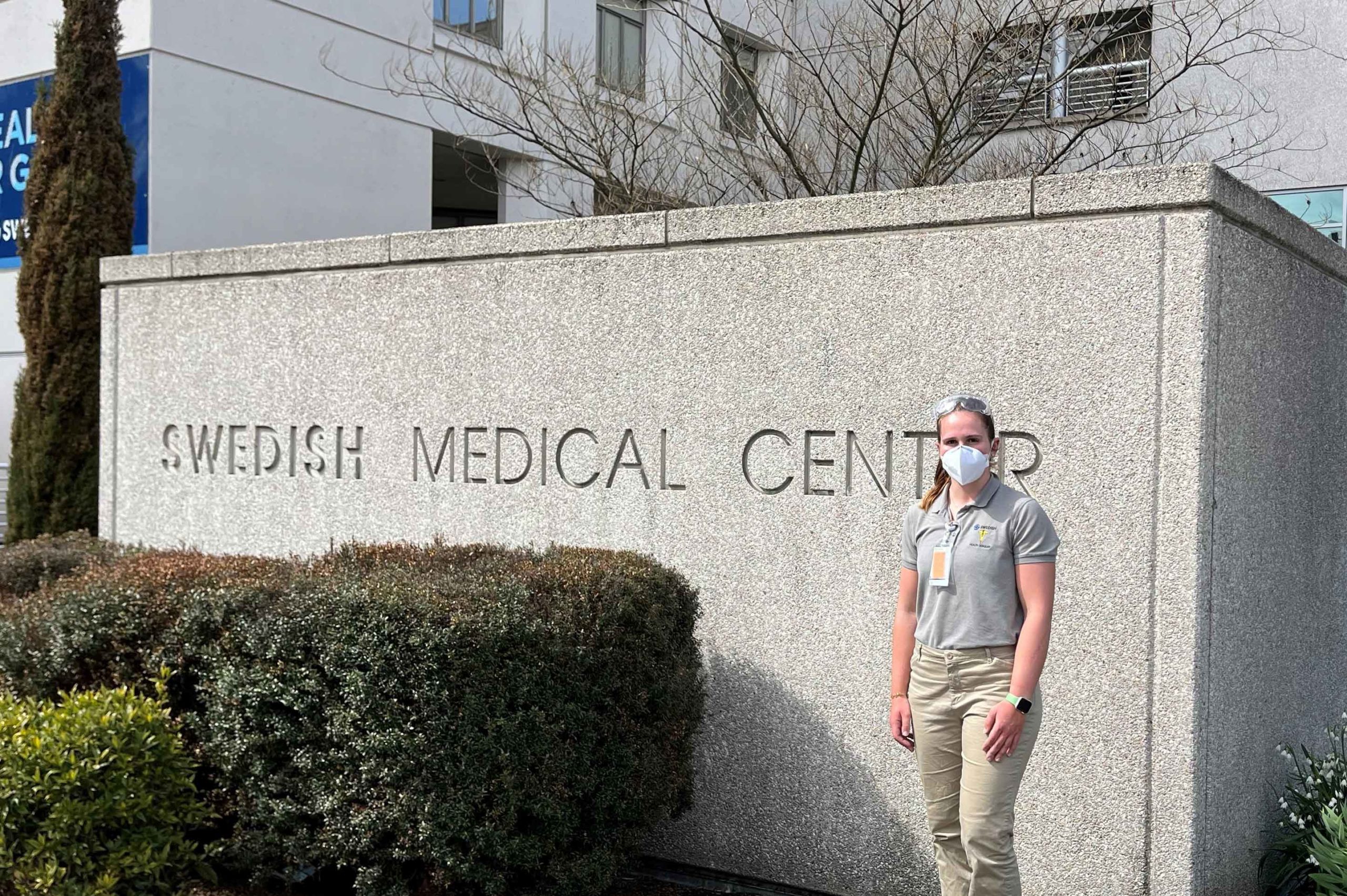
Claire volunteers with the COPE Health Scholars at Swedish Medical Center.
As a volunteer with the COPE Health Scholars program at Swedish Medical Center, Claire gains firsthand experience in both clinical and administrative health care settings and serves as an integral part of the care delivery team.
“I have a shift on a floor for four hours a week,” Claire says. “We have different roles and responsibilities, like taking vital signs and bringing water to patients. Every three months we switch to a new floor, which allows me to see different parts of the hospital. I have learned a lot from that. It’s rewarding being able to help others.”
A day in Claire’s life: focus on efficiency
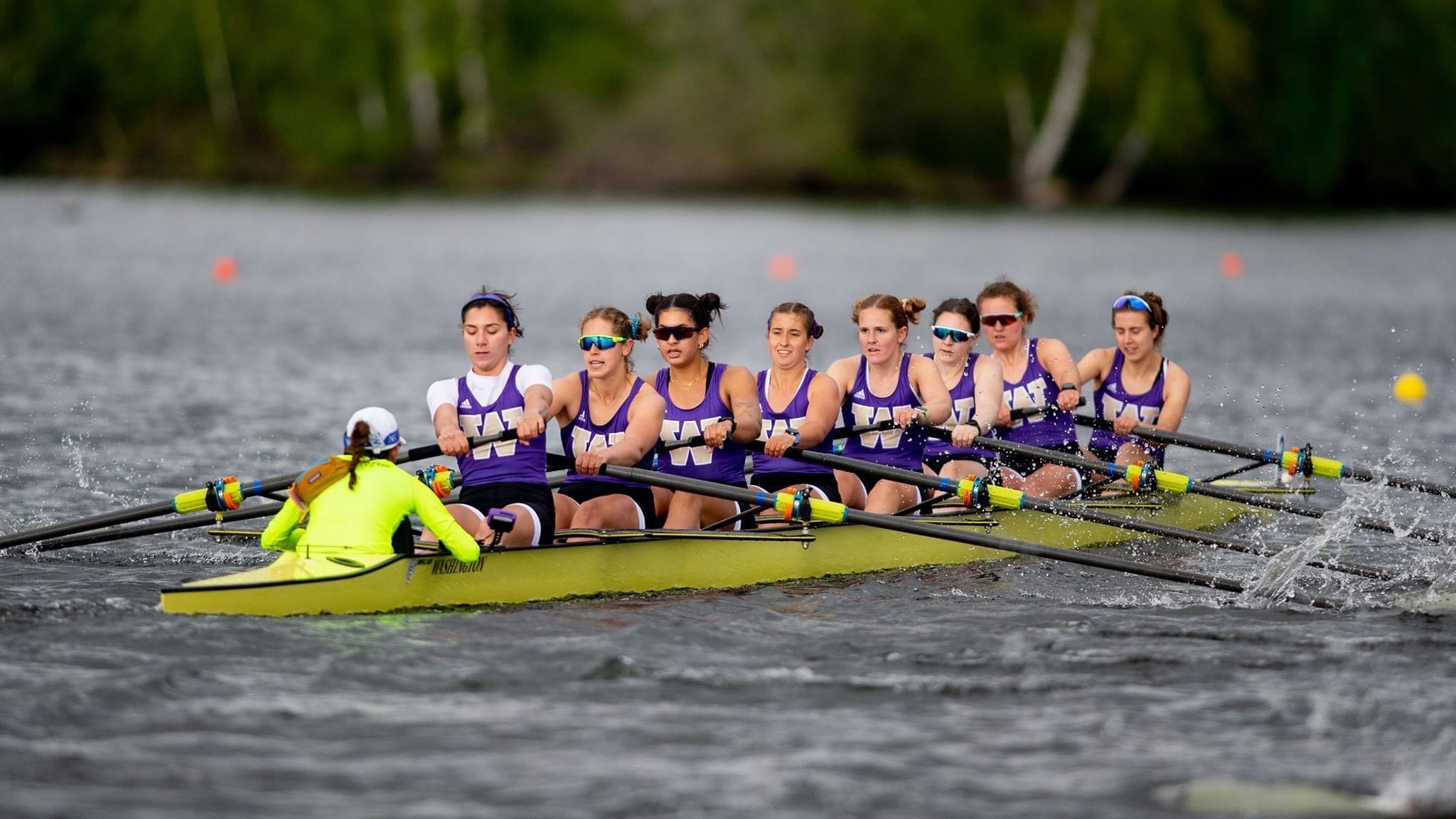
The UW women’s varsity crew at the 2021 Windermere Cup regatta on Lake Washington. Claire is rowing in seat four from the rear (right). Photo credit: Scott Eklund/Red Box Pictures
A typical weekday for Claire starts at 5:30 or 6 a.m. with an hour of practice either rowing or strength training. After showering, changing and eating breakfast, Claire attends classes for three or four hours. “I find time for lunch and a snack, then we practice again from 2:45 to 5 p.m.,” Claire says. “Afterward I eat dinner, go home around 6:30 or 7 p.m. and start my homework. I try to get as much done as I can before I’m too tired and go to bed.”
It takes discipline to manage a challenging major, a demanding collegiate sport and volunteer activities. Claire finds that devoting a little time every day to her studies helps her to stay on track. “I’ve found it’s important not to procrastinate and make the most with the time I have between practices and classes,” Claire says. “I also make sure to seek out help if I’m really struggling with something by asking a professor, TA or classmate for help.”
The path ahead
With plans to pursue medical school, Claire has especially enjoyed her biology and microcellular-related BioE classes. Due to the pandemic canceling the 2020 rowing season, the NCAA granted an extra year of eligibility for 2020-2021 collegiate athletes. Claire will continue school for a fifth year as a post-baccalaureate student to finish pre-med requirements that don’t overlap with the bioengineering curriculum. During a planned gap year, Claire will take the Medical College Admissions Test (MCAT) with the aim of being a doctor. “I’m really interested in orthopedic surgery, but I’m open to everything,” she says.
On Opening Day, the UW women will be competing against the women’s national team from Great Britain, and the UW men will hammer it out with the men’s national team from the Netherlands. Claire says the best way to watch the races is in a boat tied up to the log boom that lines the racecourse, or you can watch along the Montlake cut on the grassy area to view the last 500 meters of the race. Another place to watch is from the Montlake bridge, which will be closed to traffic during the races. That’s where Claire’s parents will be cheering on their daughter, who has found success on and off the water.
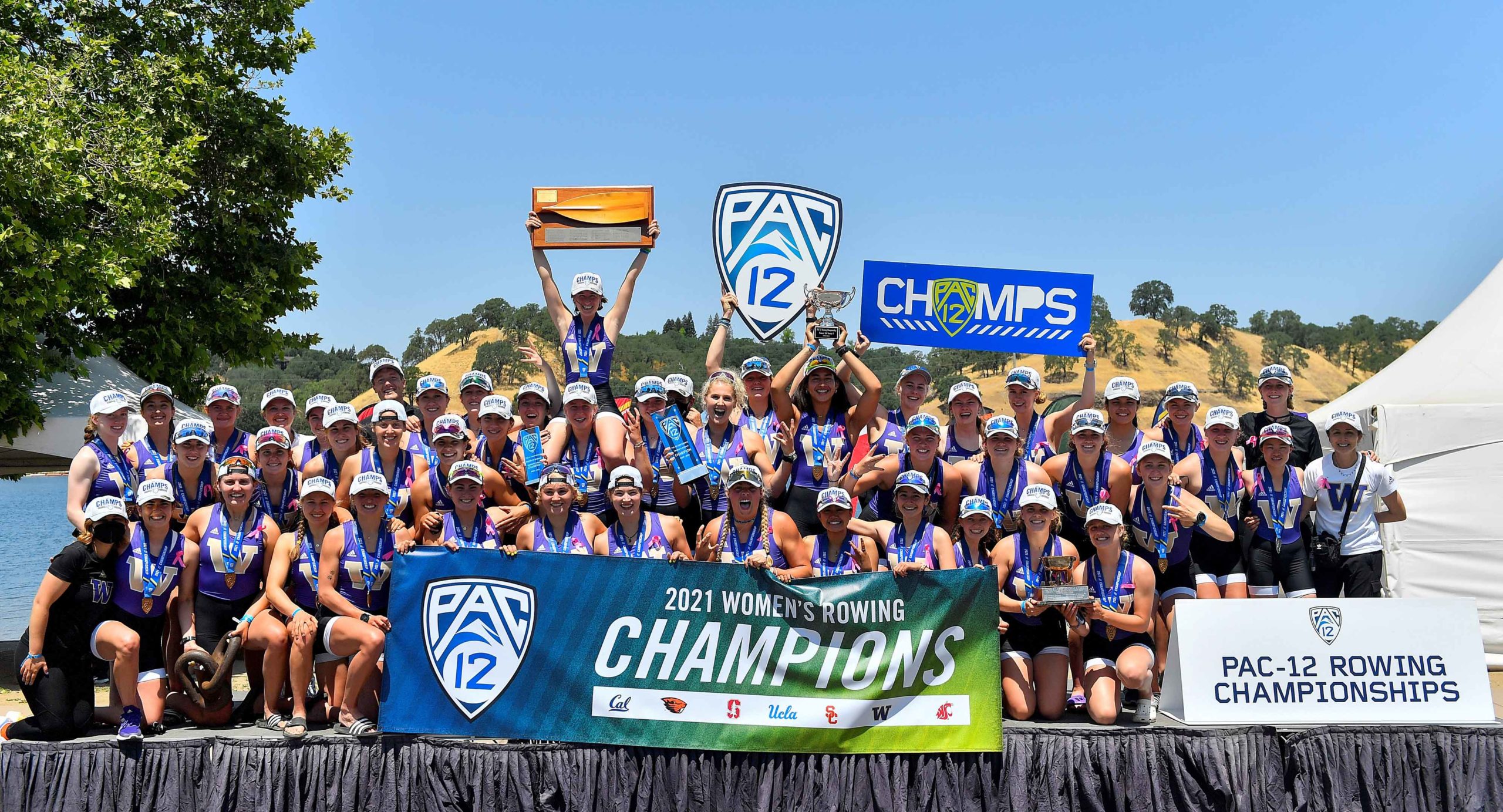
The UW women’s crew 2021 Pac-12 champions.
– Article by Arden Clise


